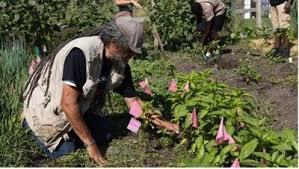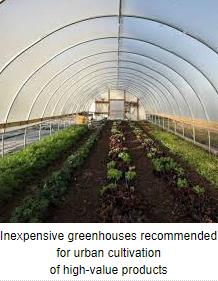T he University of Michigan School for Environment Sustainability recently concluded an evaluation of urban farming. According to the study conducted by Dr. Jason Hawes, fruit and vegetables grown in urban locations have a carbon footprint approximately six times greater than conventional commercial farms.
he University of Michigan School for Environment Sustainability recently concluded an evaluation of urban farming. According to the study conducted by Dr. Jason Hawes, fruit and vegetables grown in urban locations have a carbon footprint approximately six times greater than conventional commercial farms.
Hawes noted, “Urban Agriculture offers a variety of social, nutritional and place-based environmental benefits that make it an appealing feature of future sustainable cities.” The study demonstrated that if urban farming is to be carried out, it will be necessary to select crops that can be grown in greenhouses with a low initial capital cost and to produce items of high-value relative to weight to facilitate transport.

Over a number of years high tech solutions have been applied to urban farming including capital-intensive vertical systems requiring sophisticated operations, high utility and labor costs. Many of the startups have proven to be incapable of providing a return on investment as evidenced by bankruptcy, consolidations and termination of production in many cases as venture capital funding ceased.
It is noted that USDA in their social engineering mission under the current Administration has funded urban farming projects without providing adequate technical support, feasibility studies or financial evaluation.